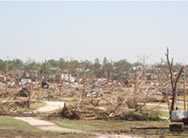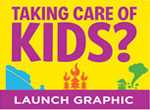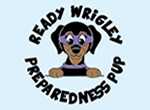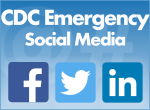The Storm is Over, But Not Its Effects: Dr. Allen’s Story
A disaster can be damaging to a child’s physical health and even more so to their mental health. Following a disaster, pediatricians should learn how to apply psychological first aid to help children cope with a disaster.

When Alabama was struck with over 250 tornadoes in April 2011, Dr. Grant Allen grieved the loss of life, housing, clean water, and food that overwhelmed many families, while he worked to provide medical care addressing both the physical and emotional effects on many children.
The local Director of Public Health and the state Disaster Response Coordinator were pediatricians. They had prepared disaster response protocols and emergency kits to meet the needs of children.
Emergency responders sprang into action immediately. The state’s emergency planning ensured physicians had temporary offices and supplies within a day, which allowed them to begin seeing patients. One of the first challenges was to help patients with special needs replace equipment lost in the storm, such as wheelchairs, walkers, and other assistive devices. Dr. Allen, along with other physicians, worked to help patients obtain medications also lost in the storm. Those pharmacies that were able to open for business replaced medications free of charge.
Treating pediatric injuries became an issue. The largest source of these injuries was not the tornado itself. Instead, they came during recovery efforts among children from unaffected areas who were not using appropriate protective clothing to assist with debris cleanup and removal.
However, the biggest challenge pediatricians faced was in supporting families of children who presented signs of extreme stress. While sheltering in school during the tornado, many children panicked at the thought of being trapped and feared for their parents’ wellbeing. This stress continued long after the skies cleared. “Many communities lost schools, churches, and homes, and most children experienced the loss of a friend or family member during the storm” says Allen. Simply attending school in temporary buildings was a constant reminder of the storms’ power, and some schools are still under construction three years later.
Dr. Allen recommends that families remain together during triage situations, to help reduce the stress that children may face from being separated. Also, “Parents and children should keep a nonclinical record with updated medications list and dosages, especially for children with special healthcare needs,” says Allen.
Lessons Learned
While physicians and other members of the emergency response system sprang into action immediately to care for the physical needs of patients, caring for emotional needs continued long after the storm passed. Pediatricians can help families cope with the emotional trauma of a disaster by helping them prepare in advance. Knowing how to reunite with loved ones can reduce some of the uncertainty and stress during an emergency. Pediatricians should also be familiar with psychological first aid and be ready to treat patients with the trauma-related stress following the event.
To read more about psychological first aid and coping with disaster visit http://emergency.cdc.gov/mentalhealth/general.asp.
More Resources
This story was provided courtesy of the American Academy of Pediatrics and Dr. Grant Allen, MD, FAAP. Dr. Allen is a pediatrician at Infants’ and Children’s Clinic in Florence, AL. His practice serves 8 counties in rural NW Alabama, NE Mississippi and Southern Tennessee. His interests include advocacy for children, promoting oral health and is the medical director for his office’s Reach Out and Read program.
- Page last reviewed: July 26, 2017
- Page last updated: September 1, 2016
- Content source:


 ShareCompartir
ShareCompartir



